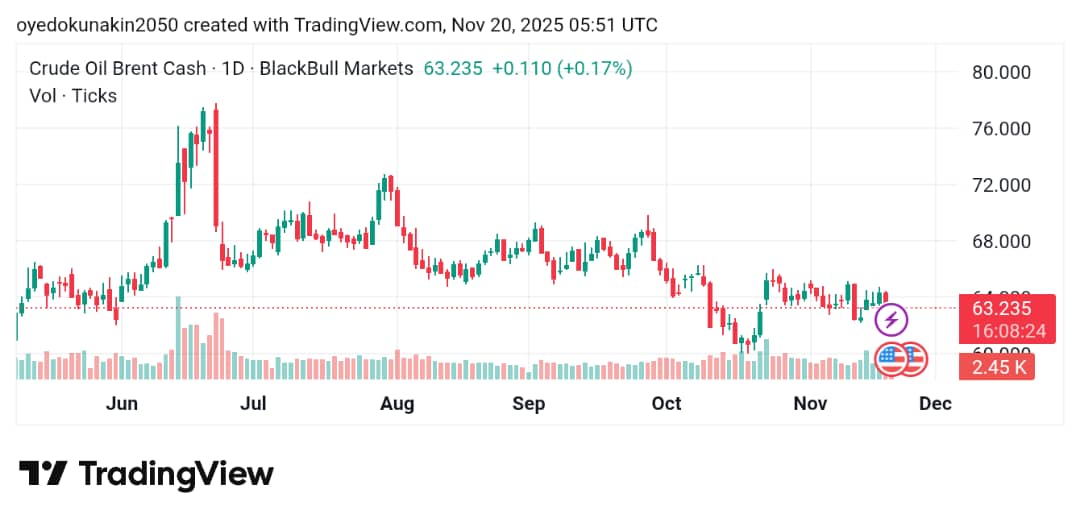
Akintunde Oyedokun
Research Analyst
Oil prices fell on Wednesday as signs of possible U.S.-backed peace talks between Ukraine and Russia lowered geopolitical risks, while oversupply concerns kept pressure on the market. Brent dropped to $63.17 and WTI to $59.09. With sanctions on Russian oil tightening and some buyers already shifting to other suppliers, traders are now focusing more on weak fundamentals that continue to pull prices down.
U.S. Trade Deficit Shrinks as Imports Fall to Early-Pandemic Levels
The U.S. trade gap narrowed significantly in August as higher tariffs pushed imports lower, potentially supporting third-quarter growth but also pointing to weaker consumer and business demand. Imports fell sharply across consumer goods, industrial supplies, and capital goods, while exports were mostly unchanged. The deficit dropped to $59.6 billion, well below expectations, as tariffs continued to influence trade patterns.
UK Inflation Slows, Boosting December Rate Cut Odds
UK inflation eased to 3.6% in October from 3.8% in September, the first drop since May, raising expectations of a Bank of England rate cut in December. The slowdown softened the pound and lowered gilt yields.
Finance Minister Rachel Reeves plans to avoid budget measures that could fuel inflation, though prices remain high and are expected to stay above the 2% target until mid-2027 due to strong wage growth and weak productivity.
South African Retail Sales Show Solid Yearly Growth in September
South African retail sales climbed 3.1% year-on-year in September, building on a revised 2.2% increase in August, according to Statistics South Africa data released Wednesday. On a seasonally adjusted basis, retail sales remained steady month-on-month, holding at 0.0% in September, signaling stable consumer spending amid broader economic conditions.
Shettima Pushes for Expansion of CNG and EV Production to Drive Nigeria’s Automotive Growth
Vice-President Kashim Shettima urged automakers to expand CNG and electric vehicle production to meet growing demand. He highlighted government support, including N20 billion for locally assembled cars and financing incentives, while officials emphasized policies to boost industrial growth, local content, and green mobility. The government also aims to position Nigeria as a West African hub for sustainable transport.










